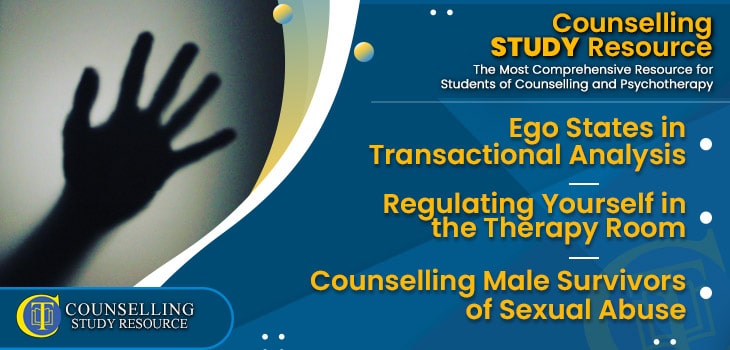See Counselling Skills Used in Real Sessions by Qualified Therapist
Real Sessions – Real Presentations – Real Skills
Gain the competence and confidence to use counselling techniques effectively!

In Episode 223 of the Counselling Tutor Podcast, your hosts Rory Lees-Oakes and Ken Kelly are back with three new topics:
What Are Ego States?
In this section, listen as Rory and Ken discuss Eric Berne’s Pack Ego Model (PAC Model):

Real Sessions – Real Presentations – Real Skills
Gain the competence and confidence to use counselling techniques effectively!
When feelings arise during a session that you know shouldn’t be there, it can be quite difficult to navigate. In this section, Rory and Ken discuss some actions you may want to consider taking if this does happen to you:

On-demand access to a rich lecture library covering theory, skills, and professional development for counselling students—Mapped to the UK awarding body criteria
“The Student Library has been BRILLIANT, I can’t recommend it enough!
It has been a lifeline in helping me prepare for practice and my first clients. If you’re considering it, go-for-it, it’s absolutely worth it!”
Kelly – Graduated and now in practice.
In this week’s ‘Practice Matters’, Rory speaks with Del Beach-Campbell about counselling male survivors of sexual abuse.
The key points of this discussion include:
What Are Ego States?

Get on-demand Certified CPD that is implementable in your practice
